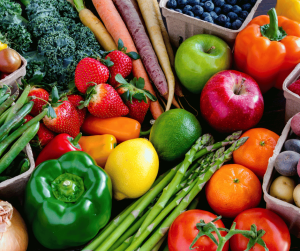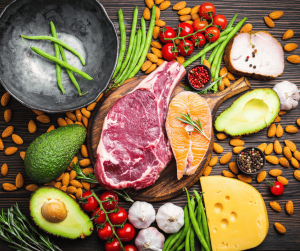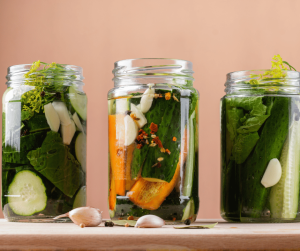Introduction
As awareness about the importance of gut health continues to grow, many people are seeking ways to optimize their gut health for improved overall wellness. One approach that has gained popularity is the paleo diet, which emphasizes whole, unprocessed foods that mimic the diet of our ancestors. In this comprehensive guide, we will explore how the paleo diet can benefit gut health, backed by scientific evidence, and provide practical tips and gut-friendly recipe examples for incorporating the paleo diet into your lifestyle.
Understanding Gut Health
The gut is a complex system that plays a crucial role in digestion and overall health. It houses trillions of microorganisms, collectively known as the gut microbiome, which have a significant impact on gut health. Imbalances in gut bacteria can lead to various health issues, including digestive problems, inflammation, and even systemic health problems.
The Paleo Diet Explained
The paleo diet is based on the idea of eating foods that our ancestors would have consumed during the Paleolithic era. It encourages whole, unprocessed foods such as lean meats, fish, vegetables, fruits, nuts, and seeds, while avoiding processed foods, grains, legumes, dairy, and refined sugars.
Benefits of the Paleo Diet for Gut Health
The paleo diet can offer several benefits for gut health, as supported by scientific research. First, the paleo diet is typically high in fiber, which can support optimal digestion and promote a healthy gut microbiome. Fiber acts as food for beneficial gut bacteria and helps maintain regular bowel movements. Additionally, the paleo diet is known for its anti-inflammatory properties due to its emphasis on whole, unprocessed foods, which can reduce gut inflammation and alleviate digestive issues.
Scientific Evidence Supporting the Paleo Diet for Gut Health
Several studies have explored the connection between the paleo diet and gut health. For instance, a study published in the journal “Digestive Diseases and Sciences” found that a paleo-style diet improved gut microbiota composition and reduced gut inflammation in patients with ulcerative colitis, a type of inflammatory bowel disease. Another study published in the “European Journal of Clinical Nutrition” showed that a paleo diet intervention improved gut permeability, indicating a healthier gut lining.
Tips for Implementing the Paleo Diet for Gut Health
Incorporating the paleo diet into your lifestyle can be done with some practical tips. Start by gradually adding more whole, unprocessed foods into your diet, such as lean meats, fish, vegetables, fruits, nuts, and seeds. Plan your meals ahead of time and experiment with paleo-friendly recipes to keep your meals interesting and flavorful. Remember to listen to your body and make adjustments based on your individual dietary needs.
Gut-Friendly Paleo Diet Recipes:
Here are some delicious and gut-friendly recipes that you can incorporate into your paleo meal plan:
Gut-Healing Bone Broth
Ingredients: Grass-fed beef or chicken bones, water, apple cider vinegar, vegetables (such as carrots, celery, and onions), fresh herbs (such as thyme, rosemary, and bay leaves).
Instructions: Place bones, water, and apple cider vinegar in a pot and bring to a boil. Reduce heat and simmer for several hours. Add vegetables and herbs, and continue to simmer for another hour. Strain the broth and use it as a base for soups, stews, or simply sip it as a nutrient-rich drink.
Probiotic-Rich Fermented Vegetables
Ingredients: Vegetables (such as cabbage, carrots, and radishes), sea salt, filtered water, optional: spices (such as garlic, ginger, and turmeric).
Instructions: Chop vegetables and place them in a jar. Add salt and massage the vegetables to release their natural juices. Add filtered water until the vegetables are fully submerged. Add spices if desired. Place a weight on top of the vegetables to keep them submerged in the brine. Cover the jar with a lid or a cloth and let it sit at room temperature for a few days to a week, depending on your desired level of fermentation. Once fermented, store the jar in the refrigerator and enjoy the probiotic-rich fermented vegetables as a side dish or condiment.
Gut-Nourishing Roasted Vegetables
Ingredients: Assorted vegetables (such as carrots, broccoli, cauliflower, bell peppers, and zucchini), olive oil, sea salt, black pepper, garlic powder, onion powder, optional: fresh herbs (such as rosemary, thyme, or parsley).
Instructions: Preheat the oven to 400°F (200°C). Wash and chop the vegetables into bite-sized pieces. In a large bowl, toss the vegetables with olive oil, sea salt, black pepper, garlic powder, and onion powder until well-coated. Spread the vegetables in a single layer on a baking sheet lined with parchment paper. Roast in the oven for 20-25 minutes or until the vegetables are tender and lightly golden. Remove from the oven, sprinkle with fresh herbs if desired, and serve as a delicious and gut-nourishing side dish.
Conclusion
Incorporating the paleo diet into your lifestyle can be a beneficial approach to improving gut health. With its emphasis on whole, unprocessed foods and anti-inflammatory properties, the paleo diet can support a healthy gut microbiome and alleviate digestive issues. By gradually incorporating paleo-friendly foods and recipes into your meal plan, you can optimize your gut health and improve your overall wellness. Try out the gut-friendly recipes provided and enjoy the benefits of the paleo diet for your gut health. Remember to always consult with a healthcare professional before making significant changes to your diet, especially if you have any existing health conditions. Happy gut, happy you!
Resources
Cordain, L., Eaton, S. B., Sebastian, A., Mann, N., Lindeberg, S., Watkins, B. A., … & Brand-Miller, J. (2005). Origins and evolution of the Western diet: health implications for the 21st century. The American journal of clinical nutrition, 81(2), 341-354.
Kresser, C. (2018). Your Personal Paleo Code: The 3-Step Plan to Lose Weight, Reverse Disease, and Stay Fit and Healthy for Life. Little, Brown Spark.
Sonnenburg, E. D., & Sonnenburg, J. L. (2016). The Good Gut: Taking Control of Your Weight, Your Mood, and Your Long-term Health. Penguin.
Harvard Health Publishing. (2019). The gut-brain connection. Harvard Medical School. Retrieved from: https://www.health.harvard.edu/diseases-and-conditions/the-gut-brain-connection
Harvard Health Publishing. (2019). Fermented foods for a healthy gut. Harvard Medical School. Retrieved from: https://www.health.harvard.edu/staying-healthy/fermented-foods-for-a-healthy-gut
Share this with your friends







